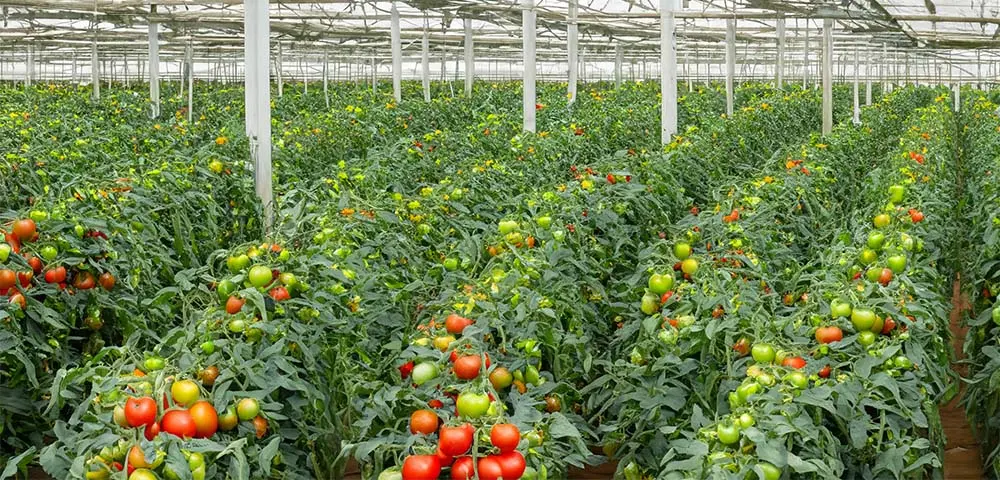Swedish year-round tomatoes often better environmental choice than Dutch
A new study comparing Swedish year-round tomato cultivation with Dutch cultivation shows that Swedish-grown tomatoes are better for the environment - under the right conditions. "Access to energy resources with low environmental impact is crucial", says Daniel Danevad, PhD in energy systems.

Access to industrial waste heat makes Swedish year-round tomato cultivation more environmentally friendly. PHOTO: Photoshop/AI.
Food production has a significant impact on the environment with effects such as global warming, acidification, and eutrophication. Therefore, Daniel Danevad, a researcher at the University of Gävle, chose to analyze the environmental impact of Swedish tomatoes compared to those produced abroad.
"The choice fell on tomatoes because it is a vegetable that is imported to a very large extent from the Netherlands and is usually grown in greenhouses. The greenhouses, in turn, require large amounts of energy for heating and lighting, which negatively affects the environment", says Daniel Danevad.
Statistically, the Netherlands has more greenhouses than Sweden, and many are used for year-round production. In Sweden, year-round tomato cultivation is very rare and occurs only to a limited extent.
Using a greenhouse simulation program that generated several different scenarios for both countries, Daniel was able to analyze how factors such as energy requirements, choice of energy sources, and greenhouse design affected the results.
"The simulation results were combined with the method of life cycle analysis, which is a method used to calculate the environmental impact of products. In this way, the results could provide a comprehensive picture of the impact tomatoes can have on the environment", says Daniel Danevad.
The results showed that Swedish tomatoes may have a lower environmental impact than Dutch tomatoes grown in equivalent greenhouses, despite Sweden having colder winters than the Netherlands. But the location of the greenhouses is crucial.
"Access to local resources such as industrial waste heat and other low-impact energy sources can have a significant impact on the results. Swedish tomatoes also had advantages related to a combination of lower transportation needs and the fact that Swedish electricity on average has a lower environmental impact than Dutch electricity", says Daniel Danevad."

This page was last updated 2024-03-19

